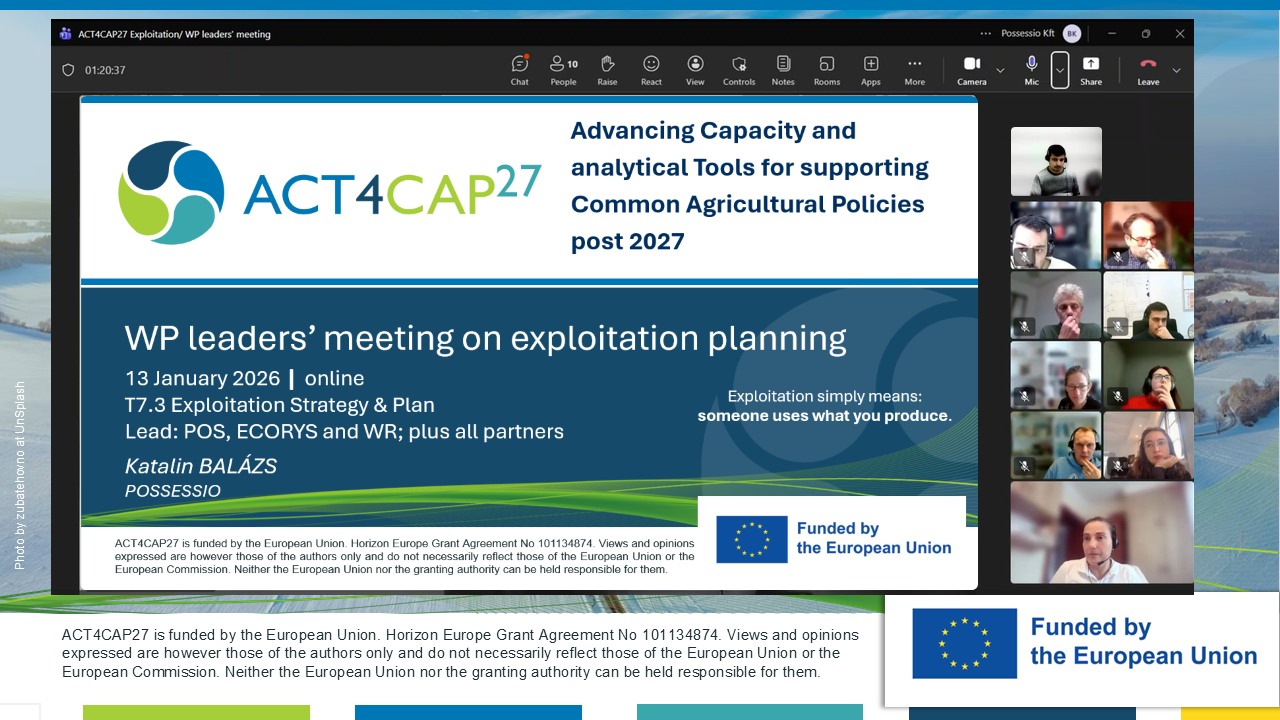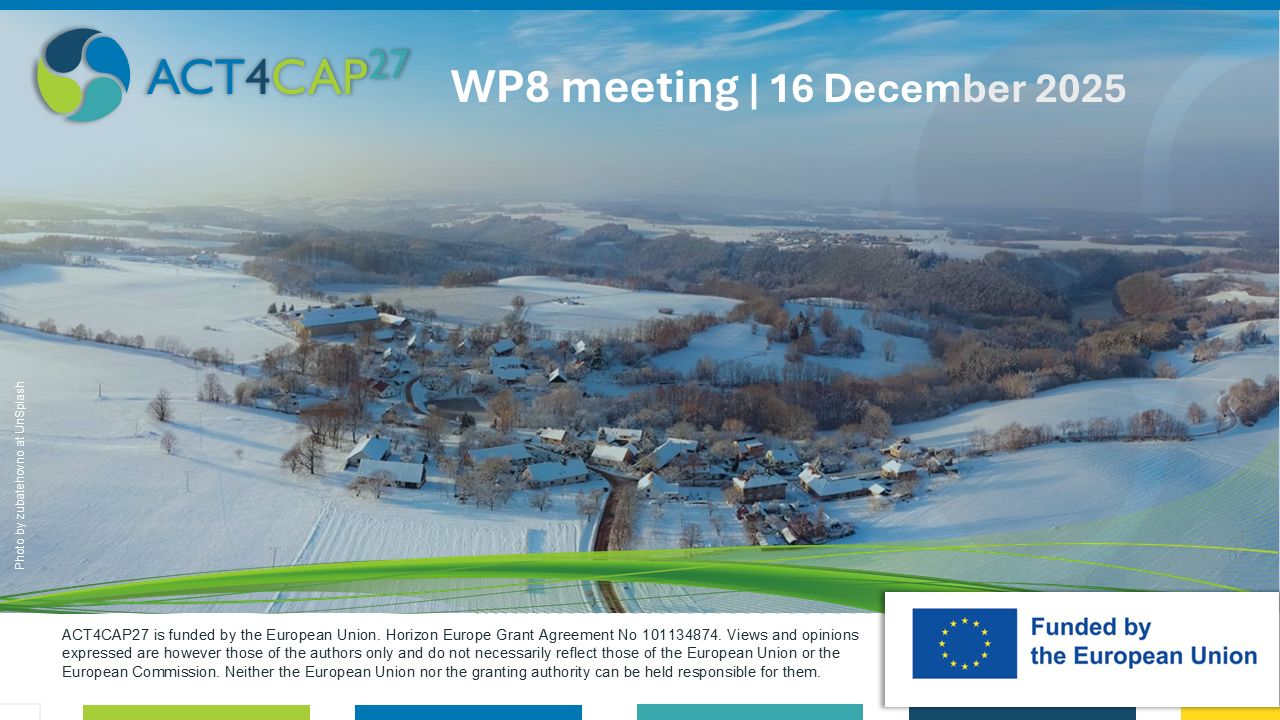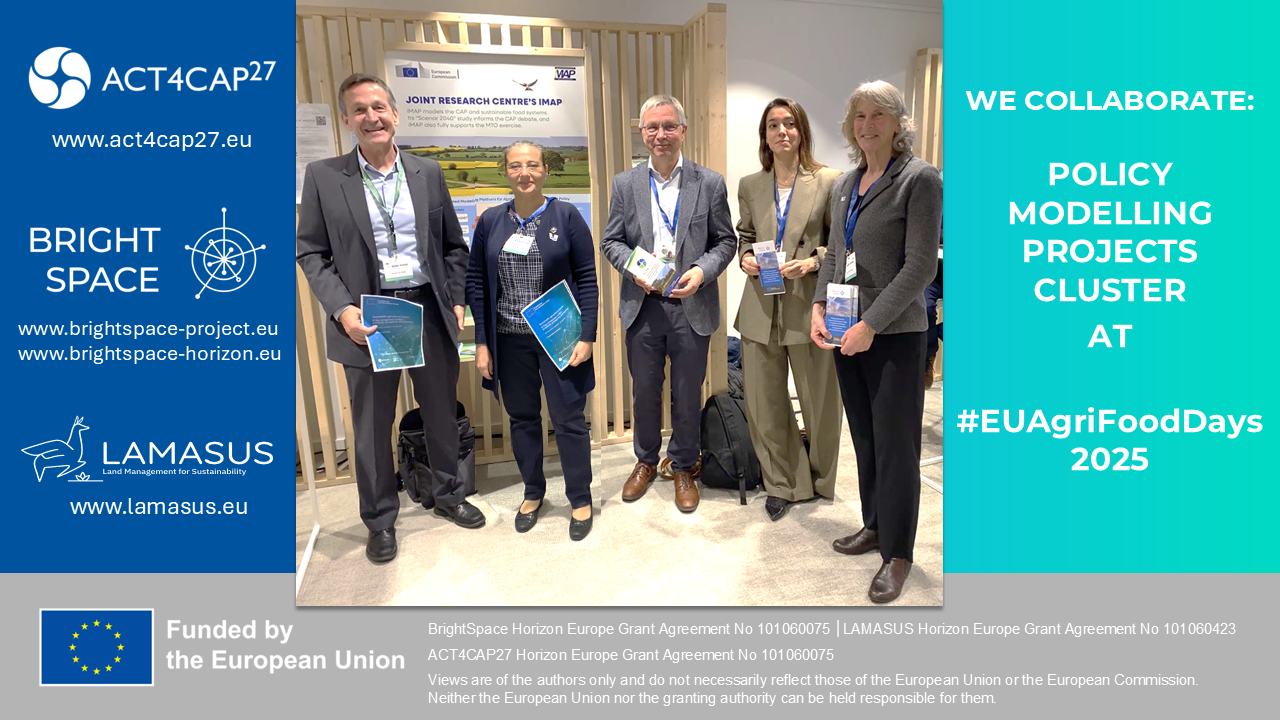On Tuesday, 6 May 2025, the ACT4CAP27 project held its second stakeholder consultation, bringing together researchers, policymakers, and representatives from agri-food associations across Europe. The online session, held from 14:00 to 16:30 CEST, focused on shaping the future of the Common Agricultural Policy (CAP) beyond 2027.
The consultation opened with an overview of ACT4CAP27’s objectives and the diverse modelling tools being enhanced within the project. These include simulations assessing diet-related health outcomes, environmental impacts, and broader socio-economic indicators. Participants also got an exclusive preview of the Vision100 paper—an upcoming strategic publication jointly developed with several Horizon Europe projects. The paper outlines forward-looking policy priorities such as result-based income support, integrated nutrient management, fair trade practices, innovation in the bioeconomy, and inclusive digitalisation in the agriculture sector.
Following the plenary session, participants joined two interactive breakout discussions:
- Breakout 1: CAP Architecture – This session explored which measures under the European Agricultural Guarantee Fund (EAGF) and the European Agricultural Fund for Rural Development (EAFRD) should be maintained, expanded, or scaled back. Participants also debated the potential role of private financing in certain support mechanisms.
- Breakout 2: Future CAP Priorities – This session examined core questions about the future direction of CAP support. Stakeholders discussed which policy objectives should be prioritised, who should be eligible for support, and whether capping payments per beneficiary would be effective or necessary.
The meeting concluded with a plenary exchange of insights from both groups, highlighting key areas of agreement and divergence. These rich inputs will feed directly into ACT4CAP27’s ongoing work and contribute to shaping evidence-based recommendations for the post-2027 CAP.
The next stakeholder consultation is scheduled for Autumn 2025 in Brussels, where the dialogue will continue. All interested stakeholders are warmly invited to take part.




